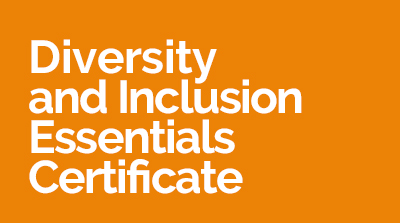
Diversity and Inclusion Essentials Certificate
Gain a deep understanding of the challenges we need to overcome and the behaviours we need to change for a more diverse and inclusive advertising industry.
With online learning content provided by The Hobbs Consultancy, this qualification will help you to step up and affect positive change in your workplace. Each of the seven modules take an in-depth look at a workplace diversity and inclusion metric. At the end of each module you will receive clear actionable tips and guidelines, whether you are in that group or want to be an active ally for that group.

Who is this qualification for?
An essential qualification for everybody within the advertising, media, or marketing industry. No matter what level of seniority you are in your business, it is the responsibility of everyone to take positive action to drive forward change in the industry and, indeed, the world.
What are the benefits?
- Learn about seven diversity metrics in more depth; race and ethnicity, gender, neurodiversity, disability, masculinity, are, and LGBTQ+.
- Understand fully why each of these seven D&I metrics is important for business
- Discover the key barriers facing different groups of people in the workplace
- Gain an understanding of your own biases, so you can begin to make changes to your behaviour if and when appropriate
- Receive clear actionable tips and guidelines to help facilitate change in your organisation
- Access further resources to continue your journey, whether as a group member or as an ally.
How is the qualification delivered and assessed?
This seven-module, 10-hour online qualification will help you gain a deep understanding of the challenges we need to overcome and the behaviors we need to change for more diverse and inclusive advertising industry. This Qualification content is provided by The Hobbs Consultancy.
Each module in this qualification looks at a workplace diversity and inclusion metric. At the end of each module, you will receive clear, actionable tips and guidelines, whether you are in that group or want to be an active ally for that group.
It will deliver and assess:
- Ten hours of online learning are accessible through the IPA website on any device or via the IPA Learning app.
- Multiple choice exam at the end of each module.
- If you complete all seven modules, you will be awarded a digital certificate of completion and 1 MIPA star towards personal accreditation.
Learning Syllabus
Module 1: Racial and ethnic diversity in the workplace
Ethnic diversity is possibly the most loaded inclusion and diversity topic in the workplace. We have collective experiences (e.g., colonialism, slavery, and genocide) that people often don’t want to discuss, which sit behind some of our current inequalities. The barriers in the way to greater ethnic diversity are linked with racial discrimination, no one is comfortable talking about discrimination, but not having these conversations at work means we don’t create change.Companies have worked hard to eliminate explicit racial discrimination which is easier to identify and sanction. However, many unconscious and implicit biases are still at play which is harder to call out.This e-learning module looks at the global picture of ethnic diversity in the workplace, considers some barriers to making it better, and shares some case studies of best practices.
Module 2: LGBTQIA+
Despite huge progress in many countries, LGBTQ+ rights issues continue to be a challenge for people in that group around the world.It is an invisible difference – we cannot identify if someone is LGBTQ+ from their appearance.While LGBTQ+ people remain ‘in the closet’ in the workplace, and around them colleagues believe same-sex relationships are wrong, there will be an impact on performance appraisal and career progression.We cannot be truly successful unless we can create the environment where everyone can bring their whole selves to work.This e-learning module looks at the global picture of LGBTQ+ inclusion in the workplace, considers some of the barriers in the way of success and shares some case studies of best practice.
Module 3: Female Careers & Leadership
Companies with more women on their boards have been found to outperform their rivals, yet women are still under-represented at senior levels.This module looks at how our beliefs about women in the workplace are built at a young age and continue to impact our experiences, both as men and women in the workplace, as adults. You will work through practical tips towards identifying and addressing gender disparities in the workplace, with specific reference to the impact of Covid-19 on the female workforce.
Module 4: Masculinity in the workplace
Society is going through rapid change in terms of the way people work. More women than ever are in the workplace, more people are working flexibly, and there is greater encouragement for men to share in the parenting and caring roles traditionally fulfilled by women.Meanwhile, men are blamed as one homogenous group for many gendered injustices. This has led to a backlash known as the manosphere. The battle between the sexes has never been more intense, despite decades of equality legislation and policies designed to redress the balance.Something isn’t working. At the same time, as society is supposed to have never had it so good, rates of male suicide and depression in both sexes are at record highs. Many men feel lost and unsupported as they adjust to these societal changes. That doesn’t help anyone, least of all women.This module looks at masculinity in the workplace from a different perspective and considers what measures can be taken by men and women to reframe masculinity positively and encourage men to be themselves.
Module 5: Disability in the workplace
There are roughly 1.31 billion disabled people in the world and it’s thought to be the fastest growing global demographic. Yet disabled people remain the most marginalised and discriminated group of people in the workplace.Whether they have a visible or invisible disability, factors such as inaccessible public transport and buildings, alongside out-dated attitudes to the capabilities of disabled people mean they are still hugely under-represented in the workplace and often experience a prejudiced pay-gap.By addressing physical barriers and evolving the general attitude and culture of inclusion within the workplace, businesses can start to generate a more welcoming environment for disabled people.
Module 6: The Creative Development Process
This module focuses on the creative development process. From fostering creativity in your everyday environment through to the creative communications development process: from receipt of the client brief to creation of the internal briefs, and to the art of creative feedback.
Module 7: Neurodiversity in the workplace
If your office has 100 people in it, you are likely to have 1 autistic person, 10 dyslexic people, 6 people with dyspraxia (also knowns as Developmental Coordination Disorder) and 5 people with ADHD.Neurodiversity is a fact. Though Neurodiversity is associated with many of our ‘leaps forward’ as a society, there is still a lot of stigma and inaccurate stereotypes around neurodivergence. As a result we are missing out on the full range of human potential.When individuals don’t feel like they can bring their whole selves to work, the company suffers culturally and economically. We can all play a part in creating an inclusive culture at work where everyone can work to their best potential.
Module 8: The Multi-generational workplace
We live in an ageing society. Although the world’s population is increasing overall, in most Western countries the birth rate is going down and life expectancy is going up. This means that the average age of the workforce is getting older. Retirement ages are rising so that people work longer to pay for the increased demand on healthcare and social care.Meanwhile, new entrants to the workforce have different expectations to previous generations. They no longer expect to stay in one job for life but to have multiple careers, exercising more choice about the type of work they do and the way they work. Flexible working practices are becoming more prevalent to enable the demands of family and career to be balanced.Whereas there used to be two generations in the workplace, it is now argued that there are at least four. These generations have different communication preferences, different strengths and different values. There are also different stereotypes associated with each one.This module considers how these rapidly changing demographics have implications for how we work well alongside one another.
Module 9: Gender Identity & Expression in the workplace
Growing up, we all realize our gender identity or how we see ourselves in terms of gender. For the vast majority of the population, this gender identity is the same as their biological sex as assigned at birth. Their body, mind, and soul all see themselves as the same gender. These people are cisgender.This is not the case for around 1% of the population, and their biological sex and gender identity do not align. These people are transgender.Over the past decade, transgender people have become increasingly visible within society. This module will enhance your understanding of living as a transgender person, help you see more clearly the challenges these people face, give you a better understanding of the relevant language and give you practical ways to be an active ally for the transgender community.
Module 10: Social Mobility in the workplace
Class is an often overlooked area of diversity in the workplace.This module has been written very specifically for the advertising and media industry. It will help you understand the critical facts about class and social mobility and make you more aware of the challenges in our industry that exacerbate the issue. It will give you practical actions your business can take to break down the class divide.0Over the past decade, transgender people have become increasingly visible within society. This module will enhance your understanding of living as a transgender person, help you see more clearly the challenges these people face, give you a better understanding of the relevant language and give you practical ways to be an active ally for the transgender community.
Pricing
Member Price
S$219
Non-Member Price
S$219
Intake Dates
The 2022 intake commences on 30 May 2022.
Testimonials
Louise Hinchliffe
Associate Director, Professional Development, IPA
“Diversity and inclusion in a business, in fact in society, is everyone’s responsibility. Changing corporate policies is not enough and very often doesn’t open people’s eyes to their own personal unconscious biases, nor indeed ways they can become the facilitators of positive change. We have launched this D&I qualification in conjunction with the Hobbs Consultancy to give people access to information and tools they can take into their personal and professional lives to make our world a fairer place for all.”
